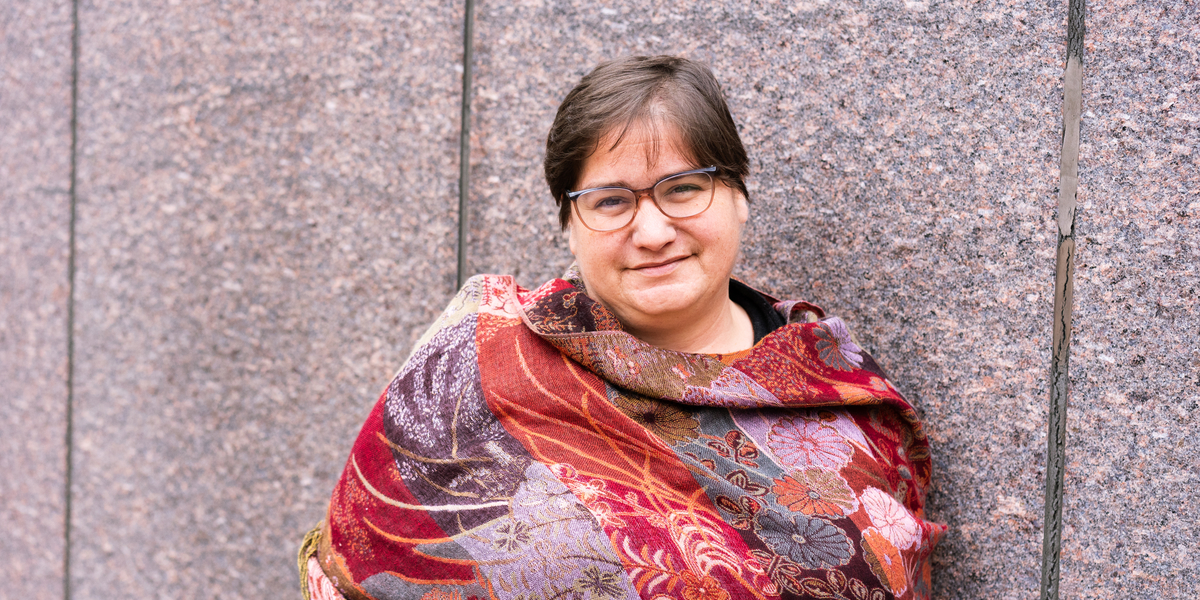
Learning requires vulnerability. Ask anyone who’s ever felt embarrassed after answering a question incorrectly or raised their hand to clarify a concept. But make a deeper connection with a professor, and the subject matter might finally “click.”
Innumerable variables may make or break student success. No one knows this better than new College of Biological Sciences faculty member Sarah Eddy, whose long-term professional goal is, generally speaking, to create a more inviting classroom environment. Eddy conducts research and creates interventions faculty can use to make their classroom content more welcoming. “By ‘welcoming,’” says Eddy, “I mean things that make students feel safe, make them feel like they belong, increase their motivation to pursue challenging tasks in class.”
It’s research that can be applied to a wide range of course material and learning settings, and it’s getting attention. In the past ten years, Eddy’s research has been featured in The Atlantic, The New York Times and Science among others. Their research has covered topics like identity in a classroom setting, how intelligence in a classroom is perceived in different genders, and diversity. Currently, Eddy is focused on active learning research and shifting the conversation around sex and gender in biology classrooms. “I’ve gotten more interested in the climate that’s happening in the classroom, and how it can be different for different groups of students in the same space.”
Eddy can provide a unique perspective on this given the time they’ve spent as a student in biology classrooms. Before they entered education, Eddy was a Ph.D. student studying salamander courtship research. They spent several years as a field tech in places like New Mexico, Cape Cod, Florida and the Farallon Islands. Despite loving science, it slowly became evident to Eddy that their heart was moving elsewhere. They wanted to be on the forefront of change in the complicated spaces they’d been navigating for over a decade.
“To become who I wanted to be, and the person I thought I was, I needed to do things that would have a more direct influence on the world.” After obtaining their Ph.D. in zoology, Eddy took a postdoc opportunity at Washington University that focused on education research. It changed everything.
Early on in their career, Eddy was known for bringing a quantitative (number-based) approach to their field, applying the statistical tools they’d learned in their biology research to a different material. But a few years ago, Eddy found themselves wanting to go deeper–and their interests led them to lean into a more qualitative approach. In doing so, Eddy gets a chance to talk with students one-on-one and explore an enduring aspect of education that can get lost in the numbers: it’s personal.
Qualitative research in their field is about finding patterns in people’s experiences, all while recognizing the unique qualities, backgrounds and perspectives each individual brings to the table. And in Eddy’s perspective, that’s exactly what makes this research so valuable. “A survey can tell us that - students don’t feel like they belong. But we don't know why. If we want to make a difference, we need to understand why. And that starts moving you into doing interviews–and a space of complexity. Different things work for different students.”
In early, small-scale studies of their current research, Eddy came to a few conclusions, one being that biology course material exploring both the diversity of sexes, gender and orientations in the natural world and how bias can influence science can enhance belonging for LGBT and STEM students. Another is that learning is more successful when a student has a more engaged relationship with their instructor. Eddy is hopeful to uncover the nuances of their research on a broader scale as they expand both research projects to the national level.
“I really hope that teaching biology can support motivation, critical analysis and critical thinking of all students–and then more students persist into biology and medical careers,” says Eddy. “If we can make everyone feel welcome, if we can engage with some of the challenges of biology’s past and present, I think we can start making really great progress.”
—Adara Taylor